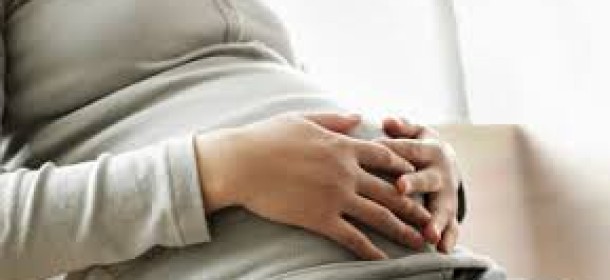Recent Comments
- Elaine Hanzak on Eyes WITH sparkle – 20 years on and the improvements in perinatal mental health
- Elaine Hanzak on Eyes WITH sparkle – 20 years on and the improvements in perinatal mental health
- Zoe Sinclair on Eyes WITH sparkle – 20 years on and the improvements in perinatal mental health
- Elaine Hanzak on Eyes WITH sparkle – 20 years on and the improvements in perinatal mental health
- Teresa Twomey on Eyes WITH sparkle – 20 years on and the improvements in perinatal mental health
Archives
Connect with me…
My Blog

Posted by Elaine Hanzak on 11 Jun 2014 /
0 Comment
As part of my research and learning for my next book on ‘Contemplating another baby after a challenging pregnancy and early motherhood’, I decided to attend a short course on ‘Stress in pregnancy’ organised by The School of Infant Mental Health in London on Saturday 7th June.
The first session was fascinating on ‘Stress in pregnancy: Effects of the fetus’ by Dr Nadja Reissland. She shared with us some stunning 4D images of babies in the womb and described some of her work on analysing their movements in relation to the stress of the mother.
The research at Durham University’s Department of Psychology “suggests that stressed mothers have fetuses who touch their face relatively more with their left hand. This suggests maternal stress could be having on effect on the child’s behaviour in the womb and highlights the importance of reducing maternal stress in pregnancy. Such measures may include increased emphasis on stopping stressful work early, the inclusion of relaxation classes in pre-natal care and involvement of the whole family in the pre-natal period…”
For a newspaper account look here. This is the link to the full study.
The use of 4D scanning could help new parents bond with their baby before it is born.
Next we heard from the well-respected Vivette Glover, Professor in Perinatal Psychobiology, Imperial College London and Honorary Senior Lecturer, Institute of Psychiatry, King’s College, London. I have heard her speak on many occasions and always learn something new.
She presented on “Maternal anxiety, depression and stress during pregnancy; effects on the fetus and the child”.
In 1997 she set up the Fetal and Neonatal Stress Research Group. The aims are to study fetal and neonatal stress responses, methods to reduce them, and long term effects. The effects of the emotional state of the mother, both on the developing fetus and longer term on the child are being studied. Recent projects of interest include studies showing that maternal prenatal stress, depression or anxiety increases the probability for a range of adverse neuro-developmental outcomes for the child. These include emotional problems, attention deficit/ hyperactivity disorder, conduct disorder, and cognitive impairment. Her group are also studying the biological mechanisms that may underlie such fetal programming.
Here is an audio link to some of her findings.
I highly recommend http://www.beginbeforebirth.org/ a website that Vivette has designed specifically on this topic for medical professionals, policy makers and anyone interested about these issues. It also has great links for parents including suggestions for mothers in how to reduce stress in pregnancy.
One of the reminders that Vivette gave to us is that antenatal depression is just as common as postnatal. I have made a mental note to be aware of this as I write my next book.
The House of Light, based in Sheffield have some good advice on antenatal depression and also http://depression-in-pregnancy.org/ has a wealth of information.
After lunch we heard from Dr Stella Acquarone, PhD, Adult and Child Psychotherapist and the Principal of the Parent Infant Centre. She is a member of the British Psychological Society, Association of Child Psychotherapy, London Centre for Psychotherapy, Psychoanalytic Psychotherapy in the NHS and the United Kingdom Registry of Psychoanalytic Psychotherapy. She is the founder of the School of Infant Mental Health in London, the Parent-Infant Clinic, Child Focus Consultancy, and the International Pre-Autistic Network and Charity.
Stella spoke to us about the three different stages of pregnancy and how the attitude of parents can make it better or worse. She recommends watching the film about a teenage pregnancy ‘Juno’ as an example of how thoughts, feelings and actions can change. She also suggested that sometimes a series of psychotherapy sessions may be useful during pregnancy as a way to help rid expectant parents of pressures. Stella cited some case studies of work she has done, for example, in helping a Dad recognise and deal with his feelings of violence towards his pregnant partner. It is a sad fact that domestic violence increase on pregnant women. Rather than ending the relationship, Stella demonstrated how it had been possible to change his thoughts and behaviours, leading to him becoming a good father. Even if a pregnancy has been stressful there are things that can be done to help the infant who shows any key areas of negative effects.
Visit their website at http://www.infantmentalhealth.com/school_of_infant_mental_health.htm
Finally we heard from Ann Herreboudt, a midwife and Parent Infant Psychotherapist in training. She has spent years working alongside renowned consultant obstetrician and gyneacologist Yehudi Gordon at his Viveka clinic and the famous John and Lizzie’s birth unit in St John’s Wood. She is also based at the Women’s Wellness Centre in Chelsea run by Gubby Aiyeda. Ann spoke to us about the reality of stress for the pregnant woman. I was fascinated to learn that generally there is no implication counselling given for couples who receive IVF treatment and only one for donor parents. Once pregnant, sometimes these ladies (and their partners) may struggle with the knowledge of an assisted pregnancy. Ann highlighted a range of issues that expectant couple go through that can have a detrimental effect on their stress levels, e.g. with regard to work and careers. She touched on miscarriage and still birth and how people need help with dealing with the grief of an expected early pregnancy and of expected babies. I didn’t know that there is an identifiable fear of birth called tokophobia. In some cases it can be so strong that it acts as a barrier to fertility. Here is a link to some information about tokophobia.
I asked Ann how she would support couples faced with contemplating another pregnancy after a mental illness from a previous one. Her key points were:
- Talking therapy is best
- Have a full debrief after the birth
- Ensure full care in provided after delivery by health professionals, family and friends
- Prepare a practical plan
- Reinforce that a subsequent illness will and can be managed if not prevented
- That they won’t be left to suffer alone
I enjoyed the day and also the opportunity to network with other people. I feel I gained some extra insight into the effects of stress on both the unborn baby and the parents. For the purpose of my book I feel that I need to explore more about what can be done to help and ease the effects. I am mindful that if I listed all of the potential negative effects of a stressful pregnancy then it would be the best contraception ever!
I am aware of some of the research around stress in pregnancy and that is vital to encourage health professionals to support expectant couples. The advice to ‘take it easy’ and rest is given yet who listens? Perhaps the rationale behind that advice needs to be emphasised more by the health services and why it is so important. I also feel that as a society we have lost the nurturing and protective elements around pregnancy. It is sad that we have to have signs on public transport to remind people to give up their seat for an expectant Mum. It is sad that pressures in the workplace and of finance encourage working until the very last weeks (or days) prior to delivery, often meaning new Mums are exhausted even before labour. I am not suggesting that we should treat pregnant women as invalids for nine months. I am encouraging us all to help take extra care of them. During those 9 months she is developing a new human life. Let’s all work together to give them both the best start possible.
We can also take a different approach to stress – in that depending on how we perceive it’s effects, it can be good for us. I strongly recommend that you grab a drink and take some time to listen to Kelly McGonigal in this clip.
Enjoy your day,
Elaine
Elaine Hanzak
m: 07762 148183
e: elaine@hanzak.com
Popular Posts
Twitter






